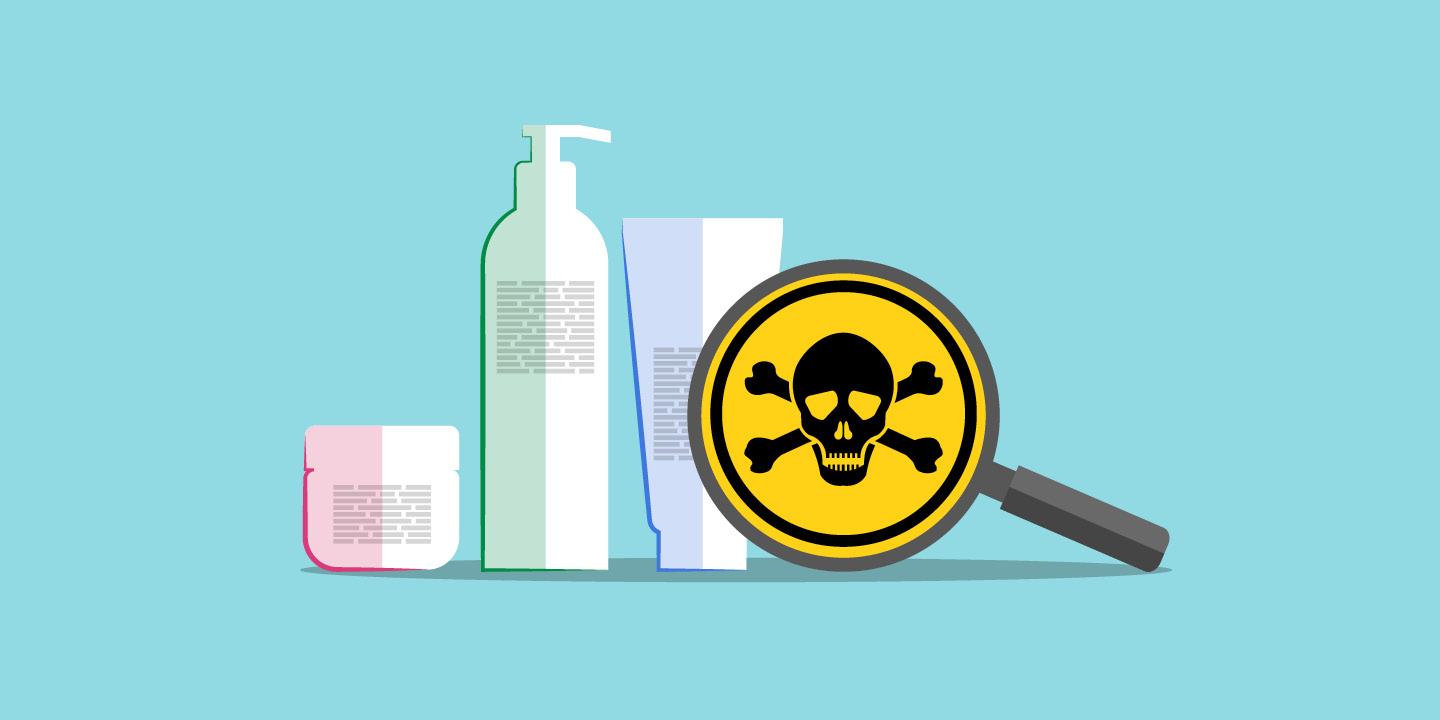
Saving Face
Student’s research highlights need for greater FDA oversight in cosmetics industry
Growing up, Juliana Harrison ’20 had designs on becoming a doctor. When it came time to choose a college, however, she found herself drawn to Bentley. “I felt like a business degree would give me more options in terms of a career path.”
As a first-year student, Harrison learned she could maintain her medical ambitions through Liberal Studies, a double major that allows business students to enhance their studies with liberal arts courses. The opportunity to combine business and healthcare, she explains, was “the best of both worlds. It made me realize I could still find ways to help people without being an actual doctor.”
Offered in nine concentrations — including Health and Industry — the major culminates with in an intensive, senior-year research project that students design with help from a faculty advisor. When it came time for Harrison to choose a topic, she drew inspiration from her personal life.
A few months before, one of Harrison’s family members had an adverse reaction to a cosmetic product. Self-conscious about his facial moles, he’d purchased a “mole corrector” cream; based on the product’s description and packaging, as well as its numerous and favorable online reviews (a 4.3-out-of-5-stars rating, based on feedback from more than 1,200 Amazon reviewers), he’d expected the moles would be quickly and easily removed. Instead, he experienced painful chemical burns and scarring that may require plastic surgery to correct.
It was only later, Harrison says, that her relative noticed a line of fine print on the packaging that warned the product “must be used with care and not on face.” Yet the images on the package — a head-and-shoulders shot of a smiling young woman with flawless skin, accompanied by a smaller, inset photo featuring a large mole on the woman’s upper lip — clearly indicated otherwise.
Sympathetic to her family member’s situation, Harrison was also curious. “I wanted to know how this could happen,” she says. “How could a product with such conflicting messaging be sold to consumers?” Her Liberal Studies research project provided the opportunity to find an answer.
Hooray for Hallyu: Student research shows the economic impact of a cultural wave
Guided by Natural and Applied Sciences and Management professor Fred Ledley and Law senior lecturer Kiana Pierre-Louis, Harrison began exploring the role of the Food and Drug Administration (FDA) in regulating the sale and use of cosmetics. Established by the 1906 Pure Food and Drug Act, the federal agency’s powers were expanded in 1938 to include cosmetics, a then-emerging industry that is now worth more than $500 million globally. She learned that, when it comes to consumer protection, the FDA is shockingly impotent.
“The average person will assume that if a product appears on a store shelf, then it must be safe to use,” Harrison says. But unlike food or pharmaceuticals, which the agency also regulates, cosmetic products and their labels do not require FDA approval; with the exception of color additives (frequently used in hair dyes), a product can be sold directly to U.S. consumers without any testing needed to guarantee its safety.
What’s more, she says, cosmetic manufacturers don’t need to inform the FDA when they receive consumer health complaints. Drug companies, however, are required to report even a single instance in which a patient has an adverse reaction. And even when consumers contact the FDA directly to report a harmful product, there’s little the agency can do about it. “The FDA can’t issue mandatory recalls,” Harrison explains. “It can request that a company stop selling its product, but it can’t force the manufacturer to comply.”
After learning that the average American uses nine cosmetic or personal care products each day — including shampoo and shaving cream as well as moisturizers and makeup — Harrison is even more amazed by the FDA’s lack of oversight. Especially given recent attempts to amend the agency’s 80-year-old mandate: In 2015, U.S. senators Diane Feinstein, D-Calif., and Susan Collins, R-Maine, proposed the Personal Care Products Safety Act, bipartisan legislation that would close the legislative loopholes and affirm the FDA’s authority. The bill failed to pass that year and was similarly defeated when reintroduced in 2017 and 2019.
As a result of her research, Harrison fully supports these legislative changes. Currently pursuing an MBA with a Marketing focus and working as a program assistant in Bentley’s Center for Integration of Science and Industry, she’s keeping tabs to see if the bill will be reintroduced in the current Congress. If so, she plans to actively participate in raising public awareness to support its passage.
“Hundreds of Americans suffer needlessly from cosmetic-related injuries every year,” Harrison says. “We need to ensure the FDA has the power to guarantee our health and safety.”

